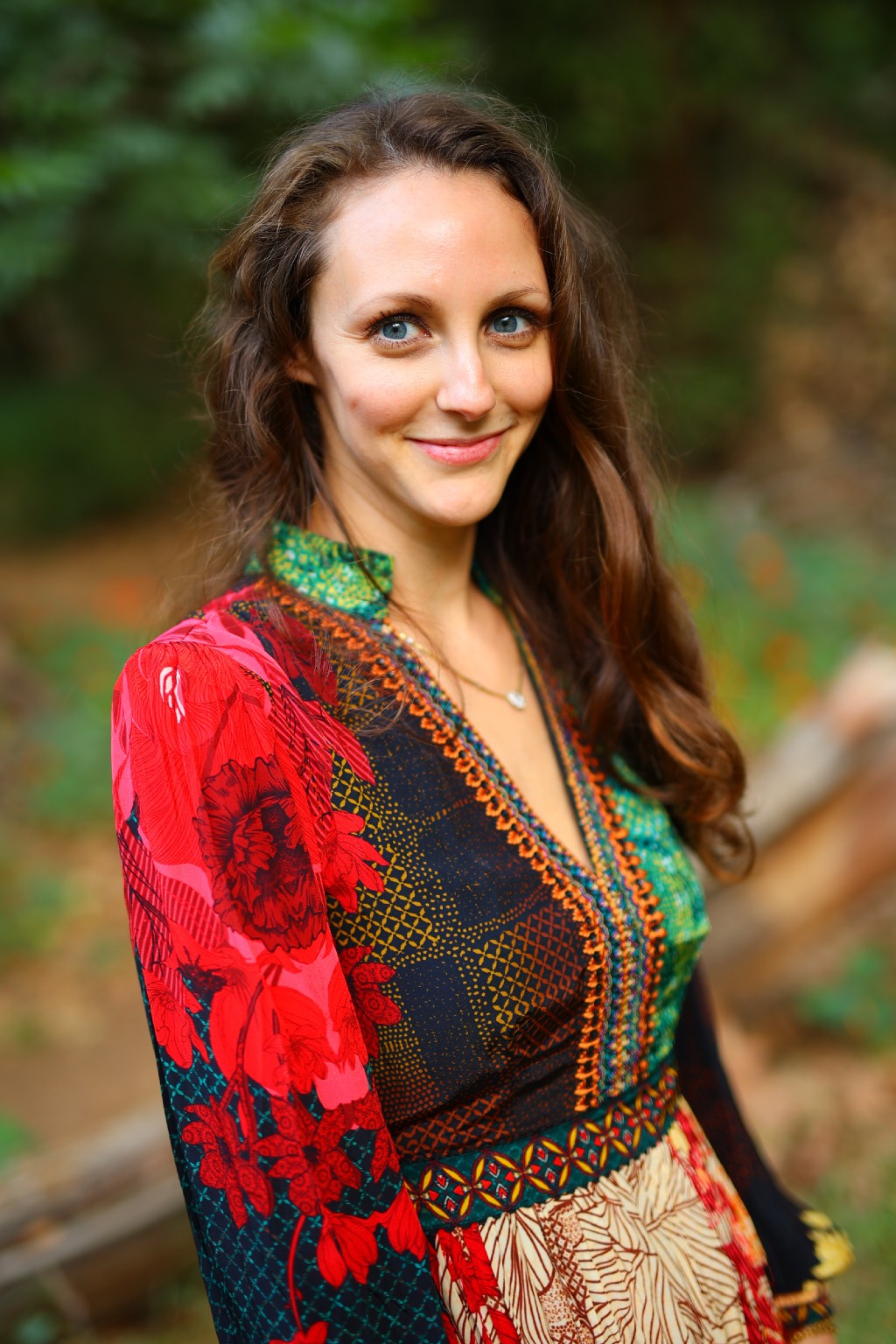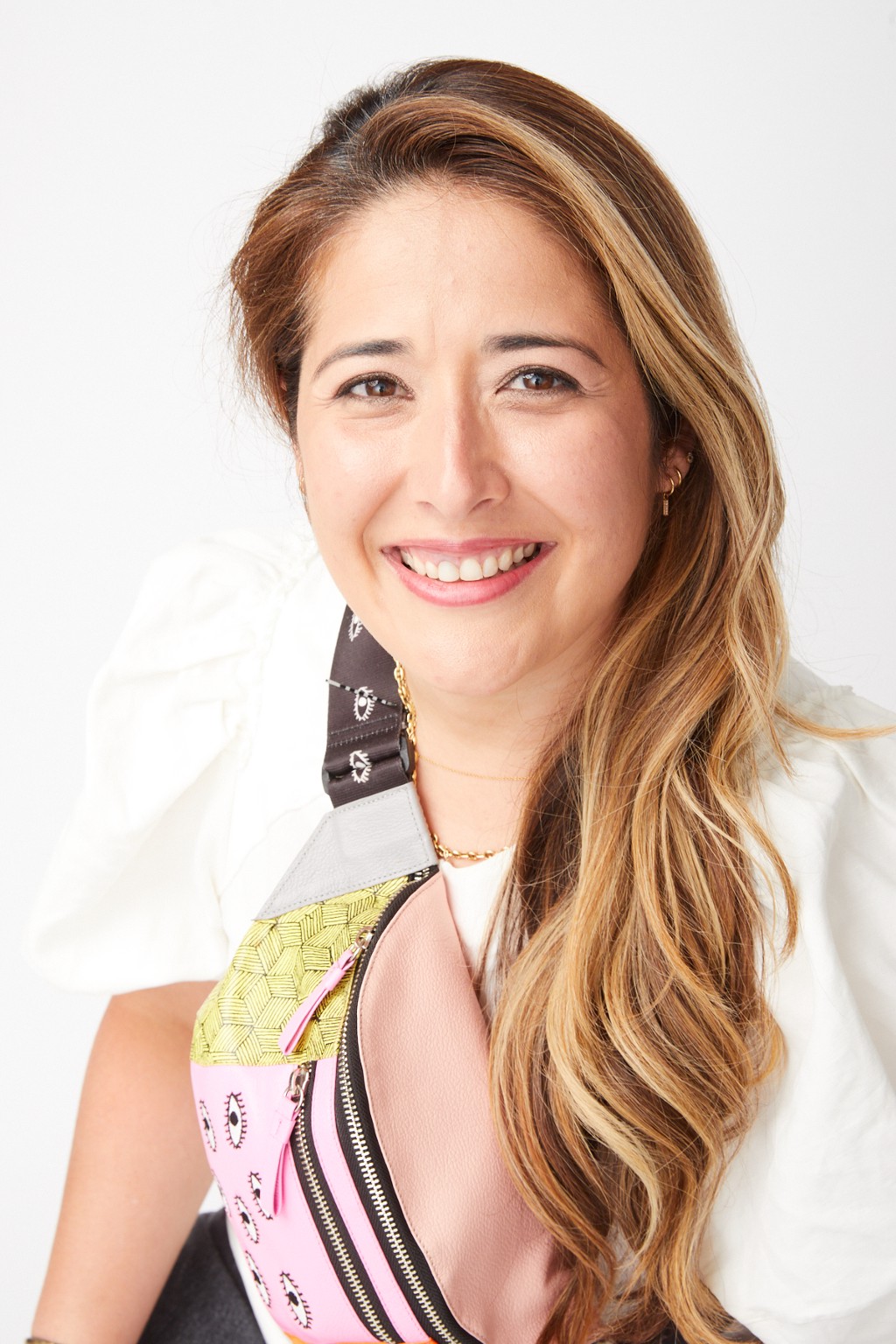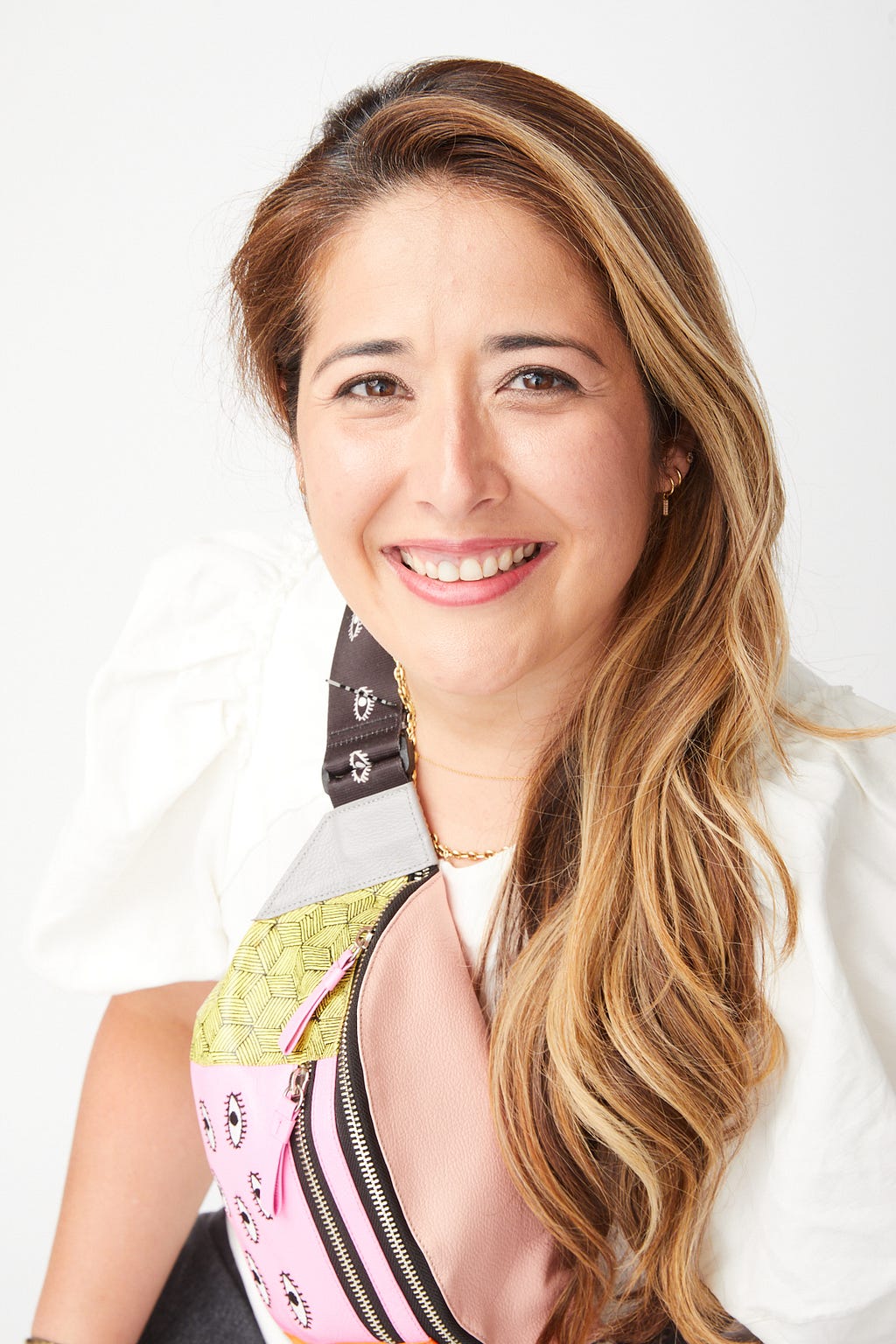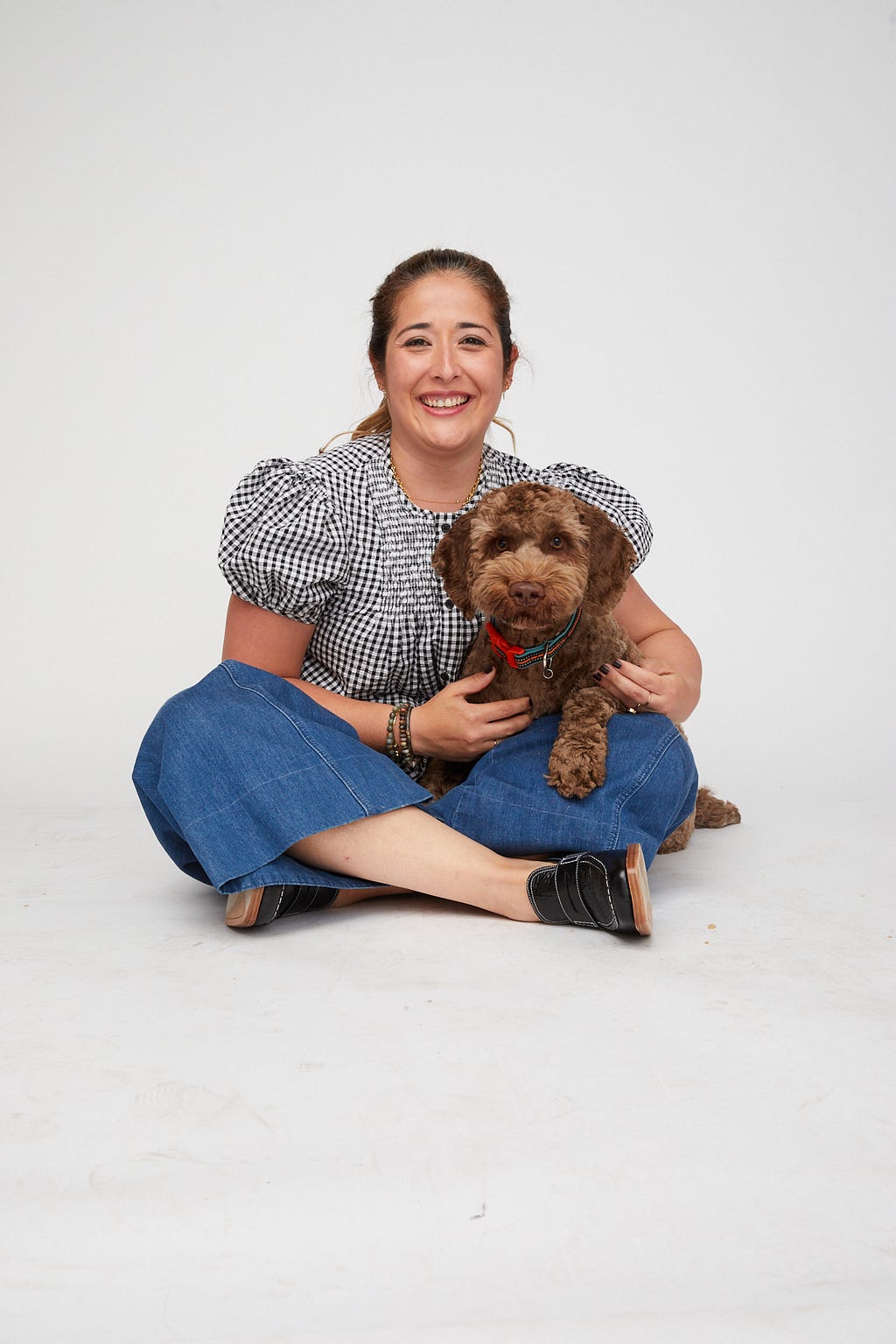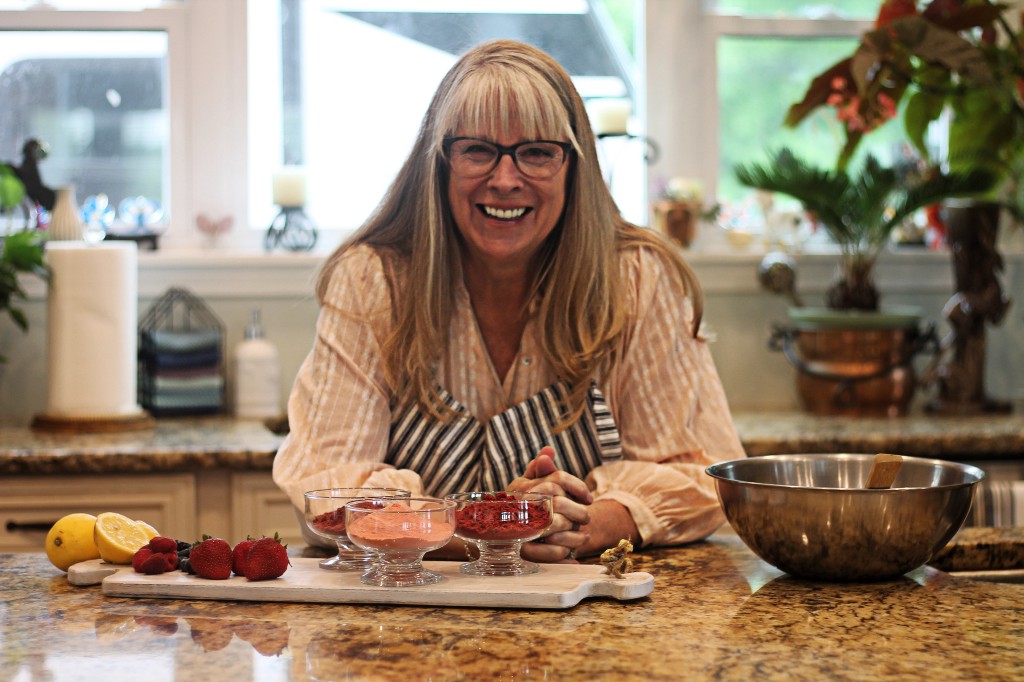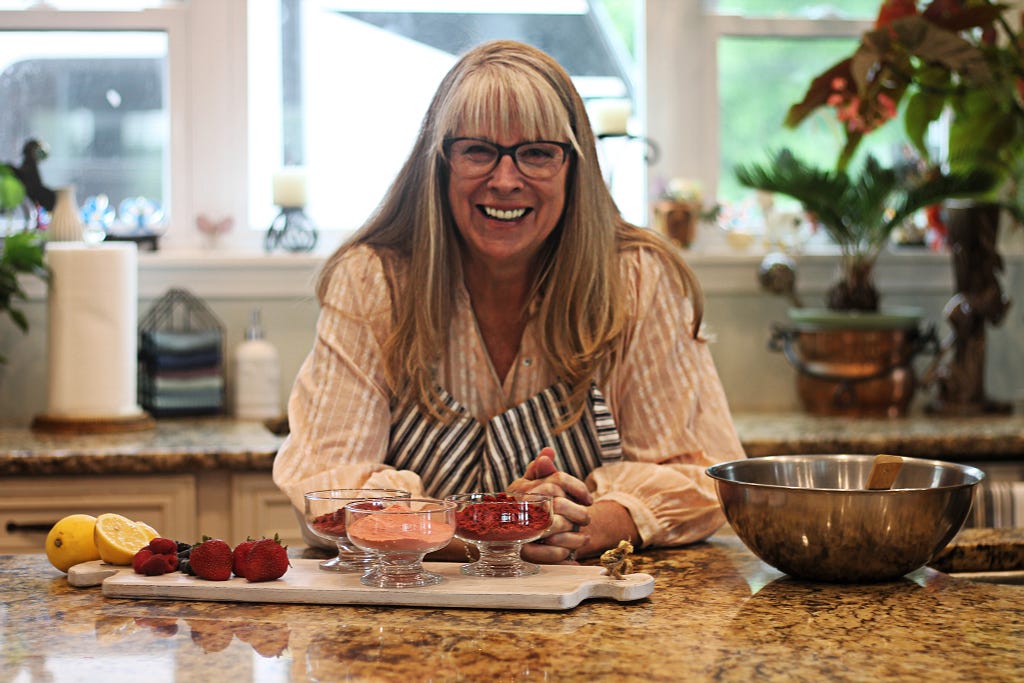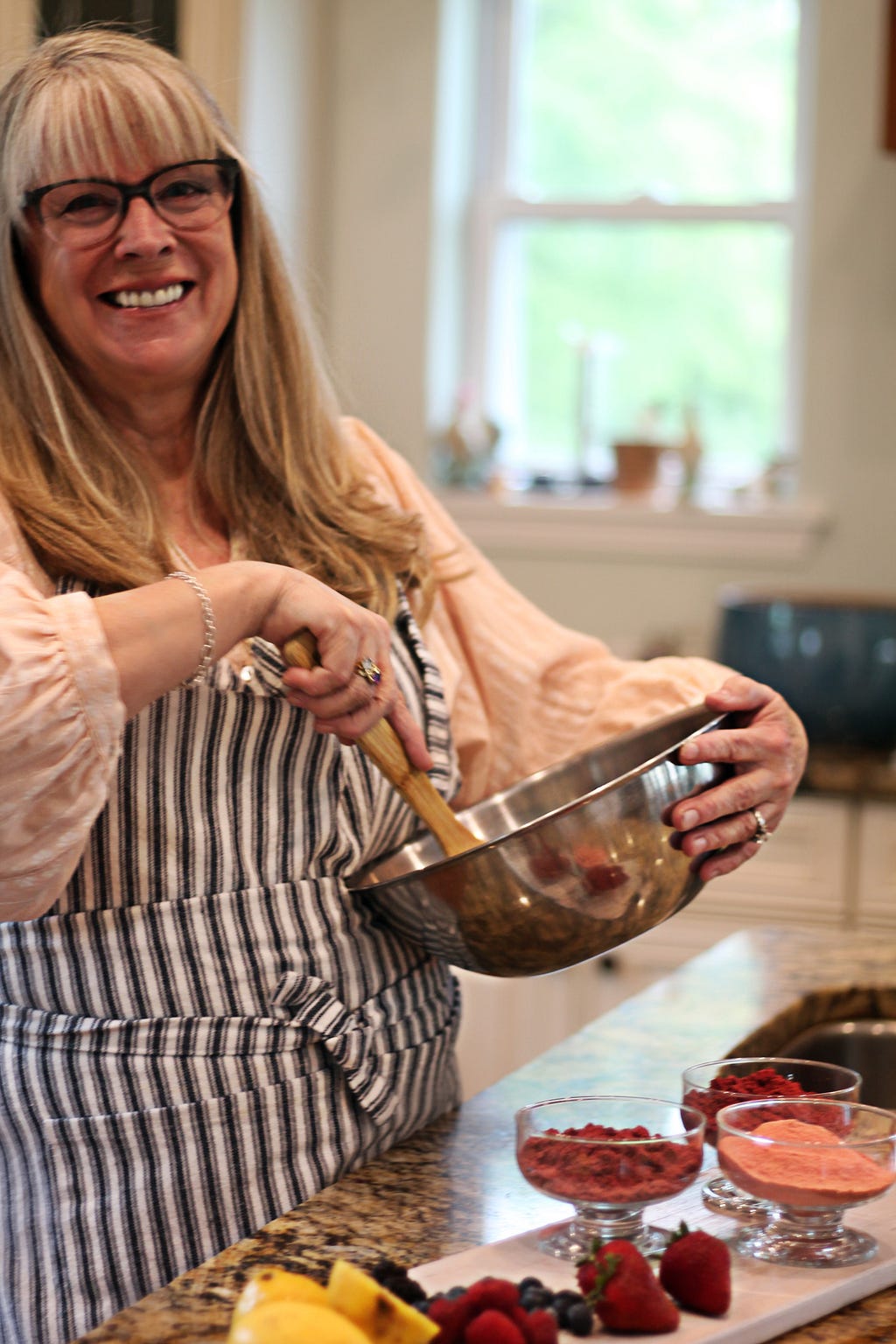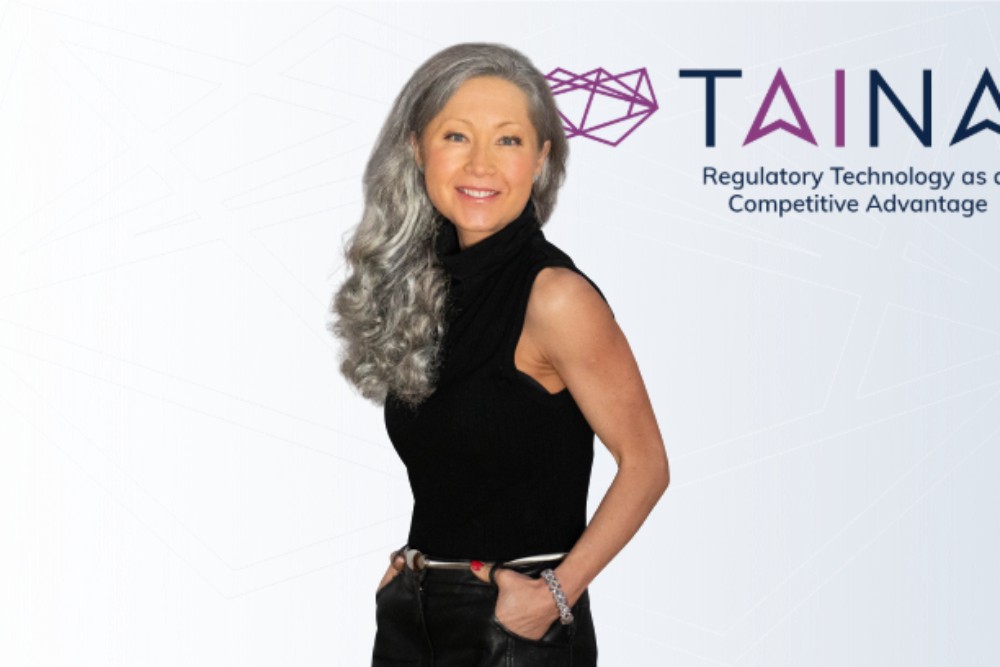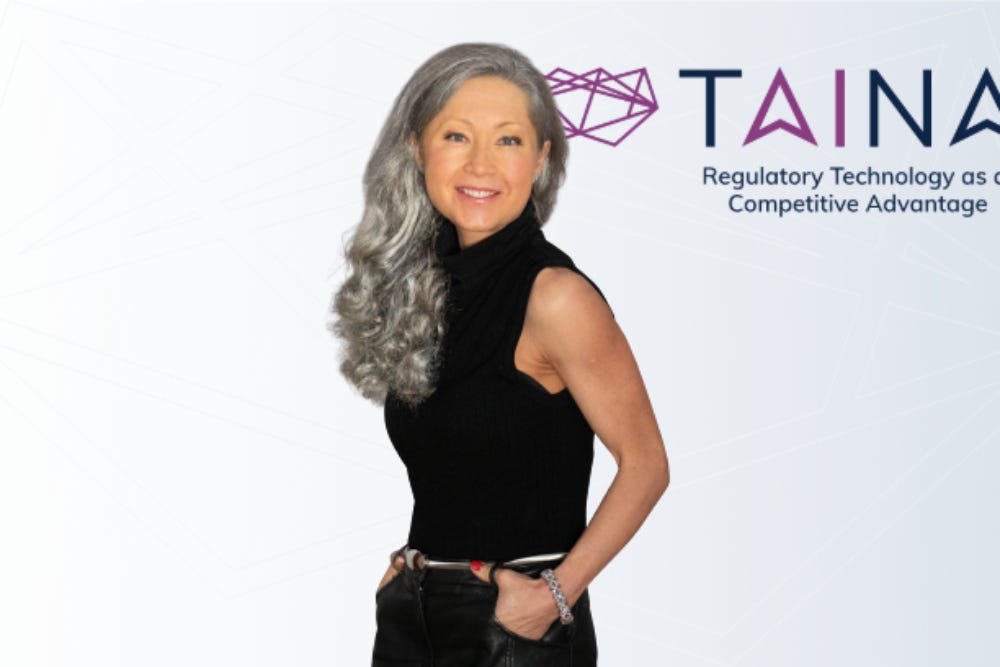Female Founders: Tanna Larson of The Green Forest Lady On The Five Things You Need To Thrive and Succeed as a Woman Founder
An Interview With Candice Georgiadis
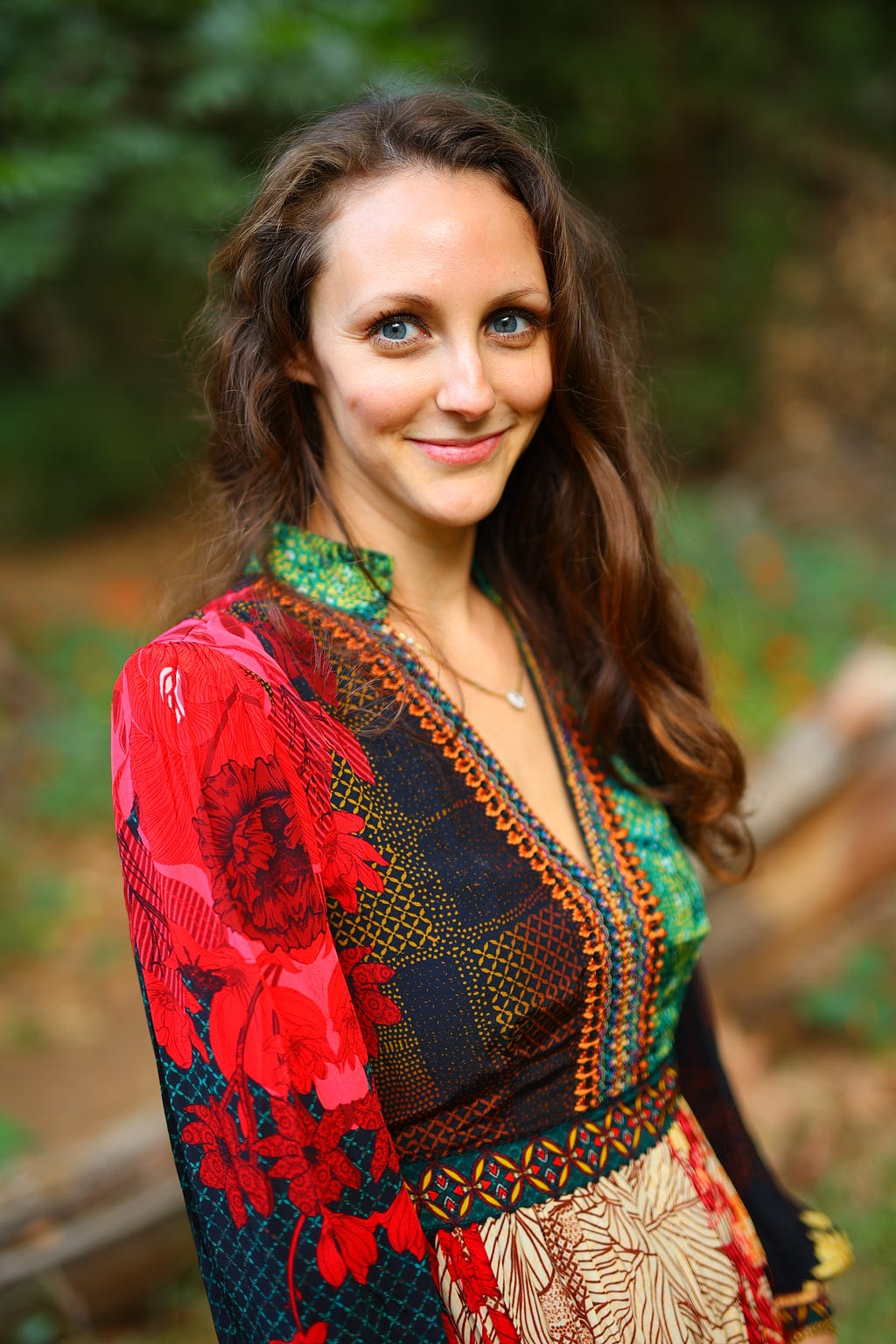
Never stop learning or pursuing knowledge in your field. I love to continually build my brain library on herbs, medicinal uses, regenerative and forest farming/gardening, and responsibly foraging.
As a part of our series about “Why We Need More Women Founders”, I had the pleasure of interviewing Tanna Larson.
The visionary, mastermind, and creator of The Green Forest Lady, Tanna Larson, is every bit the embodiment of what the company stands for: pure, clean, always organic products that promote a healthy state of being. She has spent years studying, reading, and furthering her knowledge around herbs and plant medicine, a subject she is deeply passionate about. Her goal is to continuously grow and expand her awareness of plants and their medicine, while also providing functional herbal care products in a sustainable way.
Thank you so much for doing this with us! Before we dig in, our readers would like to get to know you a bit more. Can you tell us a bit about your “backstory”? What led you to this particular career path?
I have always had a deep love for nature and plants! From the time I was very young, there was an innate part of me that naturally knew how to seek out things like wild onions. That love grew and matured, and in my 20s, began to experiment with creating everyday herbal products like shampoo, laundry detergent, and deodorant. When I was pregnant with my first child, my creations expanded to fill the need for clean, organic baby care. Through many years of trial and error, advanced learning, and numerous versions of recipes that have now been perfected, The Green Forest Lady was born.
Can you share the most interesting story that happened to you since you began leading your company?
I would love to say I have an amazing story to share here, but there isn’t just one single moment. The most interesting stories, in my mind, all happen when I am out foraging and suddenly come across a particular plant that I have been searching for, or while reading herbal literature, a new connection is made. These are the moments that keep me going with The Green Forest Lady. They breathe new life into me and ignite the passion for what I do.
Can you share a story about the funniest mistake you made when you were first starting? Can you tell us what lesson you learned from that?
Soo many mistakes were made in the beginning. One that I think back on and laugh about is a time that I set up a booth at a local expo. I brought furniture in to display my products on. While it did look beautiful, some people completely missed my products and thought I was selling “green” furniture.
None of us are able to achieve success without some help along the way. Is there a particular person who you are grateful towards who helped get you to where you are? Can you share a story about that?
Yes! Hands down, my husband has been key in my success. In addition to supporting all of my ideas, even the ones that seemed a little crazy, he also brought his knowledge of what needs to be done on the business side of things and helped with that.
My business was originally Nature’s Touch Baby and Body. Just when I was getting into the swing of things, I became pregnant with our third baby, and already having both a 3 year old and a 9 month old, the pressure of running the business with my growing family was too much. I decided to put the business on hold for a couple of years and then relaunch. My husband really was the driving force and gentle push that I needed to get going again. I distinctly remember one afternoon when he said, “So when do you think you will be ready to restart your business? Your products are too good to not be available for others to have access to. Just let me know, and I will help you get it going.” So, I relaunched and rebranded with a new name that better fit the essence of who I am and how I hope to portray the business.
That support is invaluable. Having one person that always has your back, listens to your ideas at 1am, and patiently helps in any way needed is indeed a blessing.
Ok, thank you for that. Let’s now jump to the primary focus of our interview. According to this EY report, only about 20 percent of funded companies have women founders. This reflects great historical progress, but it also shows that more work still has to be done to empower women to create companies. In your opinion and experience what is currently holding back women from founding companies?
Women in the work force happened more in recent history. During the big push for women’s rights, it seemed the focus was more on being equal to men when in fact, women are very different and, I believe, have something very different to bring to the table. Some women love climbing the corporate ladder, which is absolutely ok, but others have been kind of stuck in the belief that they must just make ends meet. While most certainly, the demands of modern life are very different than 100+ years ago and the costs associated with startup companies is astronomical, I genuinely believe that reconnecting to our feminine nature, that beautiful, nurturing, creative side will help to open more doors. Women have so much to offer that looks very different from the corporate driven world we have grown up around.
(As a side note, this is in no way trying to downplay the importance of the role the patriarchy holds. I wholeheartedly hold the belief that the strength of men and their place in society as well as the family unit should be honored. However, as women, stepping into our femininity and the power it holds instead of trying to be equal to men has enormous benefits in balancing the scales.)
Can you help articulate a few things that can be done as individuals, as a society, or by the government, to help overcome those obstacles?
There used to be this village mentality where there was more of a support system. Families lived closer together and help with children, babies, and familial responsibilities did not just fall on one person. I believe that as a society, reclaiming this village mentality could bring tremendous progress on overcoming many of the obstacles women face. Not just in founding companies, but also in early motherhood, single moms who are juggling jobs with parental responsibilities, and general life. While absolutely the most beautiful gift on earth, motherhood can be very isolating in a modern world. We must work on this on both an individual and societal level. Government should be limited.
This might be intuitive to you as a woman founder but I think it will be helpful to spell this out. Can you share a few reasons why more women should become founders?
As stated before, women have something completely different to bring to the table. Something magical. Women are softer by nature and view the world through a different lens. Life is literally birthed through us so our connection to the flow of life is something special and to be cherished. I do often feel that founding a new business or even each addition added to the business is a bit like the birthing process. How many new innovative, creative, life-changing ideas are out there waiting to be birthed?
What are the “myths” that you would like to dispel about being a founder? Can you explain what you mean?
Hearing or watching a founder of a company speak can often lead one to conclude that the process was easy. What we often see is a professional beauty with a smile that doesn’t show the backstory. The long nights of worrying about how things may be paid for, or if the idea will be a successful one, or the way in which a new business must be babied.
The most rewarding things in life are not really things at all and have been achieved through really hard work.
Is everyone cut out to be a founder? In your opinion, which specific traits increase the likelihood that a person will be a successful founder and what type of person should perhaps seek a “regular job” as an employee? Can you explain what you mean?
Not everyone at every point in their life is cut out to be a founder. A successful founder must have clear vision of what he or she wants to create for the world and also must have the drive to get there. There are many ups and downs in the process of having a business. You have to believe in yourself and what you have created enough to push through the hard times in order to succeed.
It isn’t a bad or negative trait for someone to seek a “regular job” as an employee. Employees are an integral part of any business. The person who seeks employment at a “regular job” most likely has many lessons waiting to be learned to build the character necessary for perhaps later starting a business.
Let me give you an example.. When I was 17 and in high school, I worked for my parents’ business where my mom taught me data inputting.. A few years later, I was hired at a prestigious Women’s Club for those particular skills. My skills there were greatly expanded into management, graphic design, accounting, people skills, event planning, and more. That job, though soul-tiringly hard, taught me so many invaluable lessons that have been used in the years since. That job held many of the building blocks I needed to get to where I am now.
Each of us are in different stages of life. One stage may require a “regular job” in order to build the character, work ethic, knowledge, wisdom, experience needed to later start a new company.
Ok super. Here is the main question of our interview. What are your “5 Things I Wish Someone Told Me Before I Started” and why? (Please share a story or example for each.)
- Just go for it!! Have confidence in yourself. Failure isn’t really failure unless you never try. You never know the impact what you bring into being can have on someone’s life. I very much live in my own head and have ideas/products that I held back on sharing with the world because I was somehow worried or afraid of the feedback. It took a while for me to work through the fact that I don’t have to please everyone, and not every single person would have the same personal experience with my products and therefore have differing opinions. None of them are “bad.”
- Not every day will always be a joyride. Difficulties are the “uphill climb” needed to get to the top of the mountain so you can see the beautiful view.
- Pace yourself. Time is a funny thing. It goes by so quickly, yet it shouldn’t be rushed. Time can fine tune the roughest of ideas, and help things fall into place when it is right. It isn’t a race. 😊
- Write everything down — make lists. I tend to think very quickly and ideas sometimes pop in my head that are also forgotten just as quickly. Writing everything down just helps to recall those tiny budding ideas that may bloom into something so beautiful it has to be shared with the world.
- Never stop learning or pursuing knowledge in your field. I love to continually build my brain library on herbs, medicinal uses, regenerative and forest farming/gardening, and responsibly foraging.
One thing that I have carried with me from the beginning was the belief that we, as women, do not need to be in competition with one another. We may have similar, or completely polarized gifts to offer the world. The goal is to support one another and continually build one other up. There is room for each of us to be successful and thrive.
How have you used your success to make the world a better place?
Creating from the intention of and with a connection to nature to bring healing products to the world is incredibly important to me. Showcasing just how abundant the earth is in natural, organic, healing resources to dettract people from the huge disconnect we see with synthetic lab/factory created goods is a giant step in meaningful progress.
You are a person of great influence. If you could inspire a movement that would bring the most amount of good for the greatest number of people, what would that be? You never know what your idea can trigger.
A better connection to the natural world. Realizing that we are not separate from nature, we are nature. I believe that if this truth was realized on a mass scale, we would see an enormous positive change for both humanity and the earth.
We are very blessed that some very prominent names in Business, VC funding, Sports, and Entertainment read this column. Is there a person in the world, or in the US with whom you would love to have a private breakfast or lunch with, and why? He or she might just see this if we tag them.
Perhaps both John Slattery and Rosemary Gladstar. Their sheer knowledge, wisdom, experience, and connection to plants is something I strive for. It would be an honor to be able to spend a few moments with either of them.
Thank you for these fantastic insights. We greatly appreciate the time you spent on this.
Female Founders: Tanna Larson of The Green Forest Lady On The Five Things You Need To Thrive and… was originally published in Authority Magazine on Medium, where people are continuing the conversation by highlighting and responding to this story.


